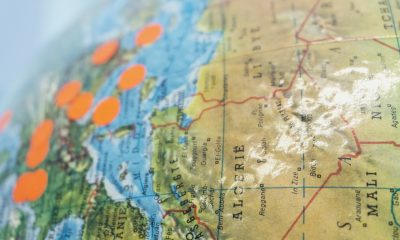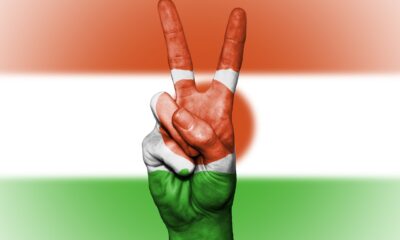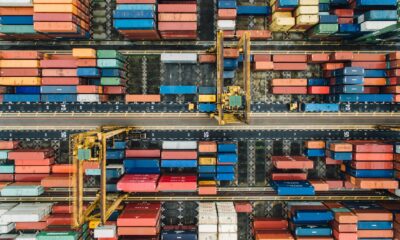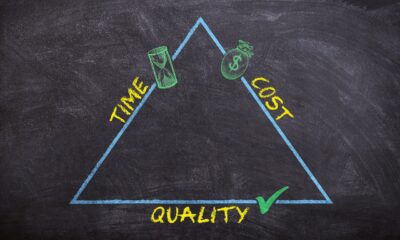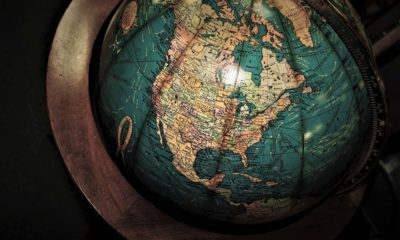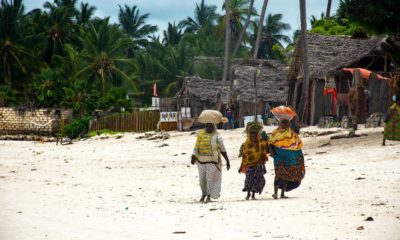Africa
The Nigeria-Morocco gas pipeline project is being discussed again
The Nigeria-Morocco gas pipeline, which would cross several ECOWAS countries is being discussed again. This project comes at a time when major discoveries off the coasts of Senegal and Mauritania are due to come on stream in 2022. The project is in competition with the TSGP (Trans-Saharian Gas Pipeline), an 80s gas pipeline program between Nigeria and Algeria, which was reactivated for a time by NEPAD.
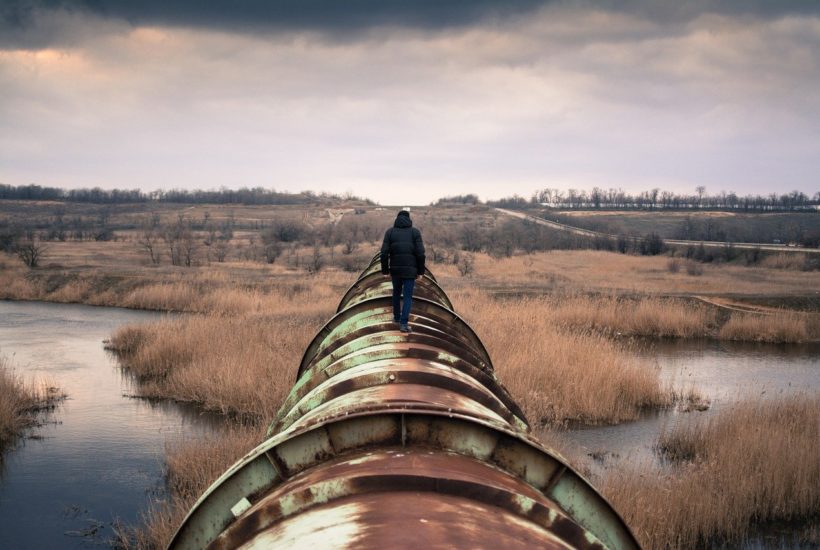
During a telephone conversation on Sunday, January 31st, between King Mohammed VI of Morocco and President Muhammadu Buhari of Nigeria, the Nigeria-Morocco gas pipeline project and a fertilizer project in Nigeria, in partnership with the Office Chérifien des Phosphates, were discussed.
The pipeline project, 7,500 km long at an estimated cost of $20 billion, was discussed in 2016 during the visit of King Mohammed VI to Nigeria and in 2018 during the visit of President Muhammadu Buhari to Morocco. The pipeline aims to supply West Africa, Morocco and European markets. The English engineering office, Penspen, is working on the technical aspects of the project.
However, it must be said that this project, which will cross several ECOWAS countries, is in competition with the TSGP (Trans-Saharian Gas Pipeline), an 80s gas pipeline program between Nigeria and Algeria. Reactivated for a time by NEPAD (an organization that collects white elephants), the Trans-Saharian was reactivated by Algiers in 2018 following the Moroccan announcement. Thus, in October 2018, a meeting chaired by the Ministers of Foreign Affairs of both countries had discussed the project, without follow-up.
If you want to find more details about the gas pipeline project between Nigeria and Morocco and to read the most important economic news from around the world, download for free the Born2Invest mobile app,
For its part, ECOWAS seems to have made its choice between the two rival projects
Thus, on December 10th, 2020 in Ouagadougou, on the sidelines of the meeting of energy sector stakeholders of the Economic Community of West African States (ECOWAS), strong directives were issued for the continuation of the Nigeria-Morocco Gas Pipeline (NMGP) project with a view to the conclusion of a Memorandum of Understanding (MoU) to enable the detailed study of a single gas pipeline project in West Africa. According to the recommendations of ECOWAS stakeholders, the studies to be conducted with the promoters of the NMGP should include Phase 1 of the West African Gas Pipeline Network Extension Project (WAGPEP) whose preparation had been initiated by ECOWAS.
“From the presentation of the WAGPEP project made by the ECOWAS Commission and that of the NMGP project made virtually by the National Petroleum Corporation of Nigeria (NNPC) and the Office National des Hydrocarbures du Maroc (ONHYM), it appears that the two initiatives have more or less the same route and are at the same stage of progress. Moreover, the conclusions of the two studies have shown that these projects contribute to similar objectives including the development of gas resources in the region and the supply of clean energy to countries including ECOWAS Member States,” the communiqué reads .
These latest developments of the Morocco-Nigeria gas pipeline project are to be brought closer to the strategic interests of the various stakeholders and, in particular, the European Union which, via Spain, receives from Algiers some 20 billion cubic meters of gas per year. Nigeria produces on average 38 billion cubic meters per year, i.e. 60% of Algerian production. This project comes at a time when major discoveries off the coasts of Senegal and Mauritania are due to come on stream in 2022.
__
(Featured image by Free-Photos via Pixabay)
DISCLAIMER: This article was written by a third party contributor and does not reflect the opinion of Born2Invest, its management, staff or its associates. Please review our disclaimer for more information.
This article may include forward-looking statements. These forward-looking statements generally are identified by the words “believe,” “project,” “estimate,” “become,” “plan,” “will,” and similar expressions. These forward-looking statements involve known and unknown risks as well as uncertainties, including those discussed in the following cautionary statements and elsewhere in this article and on this site. Although the Company may believe that its expectations are based on reasonable assumptions, the actual results that the Company may achieve may differ materially from any forward-looking statements, which reflect the opinions of the management of the Company only as of the date hereof. Additionally, please make sure to read these important disclosures.
First published in Financial Afrik, a third-party contributor translated and adapted the article from the original. In case of discrepancy, the original will prevail.
Although we made reasonable efforts to provide accurate translations, some parts may be incorrect. Born2Invest assumes no responsibility for errors, omissions or ambiguities in the translations provided on this website. Any person or entity relying on translated content does so at their own risk. Born2Invest is not responsible for losses caused by such reliance on the accuracy or reliability of translated information. If you wish to report an error or inaccuracy in the translation, we encourage you to contact us.

-

 Africa1 week ago
Africa1 week agoCôte d’Ivoire Unveils Ambitious Plan to Triple Oil Output and Double Gas Production by 2030
-

 Business6 days ago
Business6 days agoThe TopRanked.io Weekly Digest: What’s Hot in Affiliate Marketing [NordVPN Affiliate Program Review]
-

 Fintech2 weeks ago
Fintech2 weeks agoBitget Secures Operational License in Georgia, Strengthening Its Eastern Expansion
-

 Cannabis1 day ago
Cannabis1 day agoCannabis Company Adopts Dogecoin for Treasury Innovation
